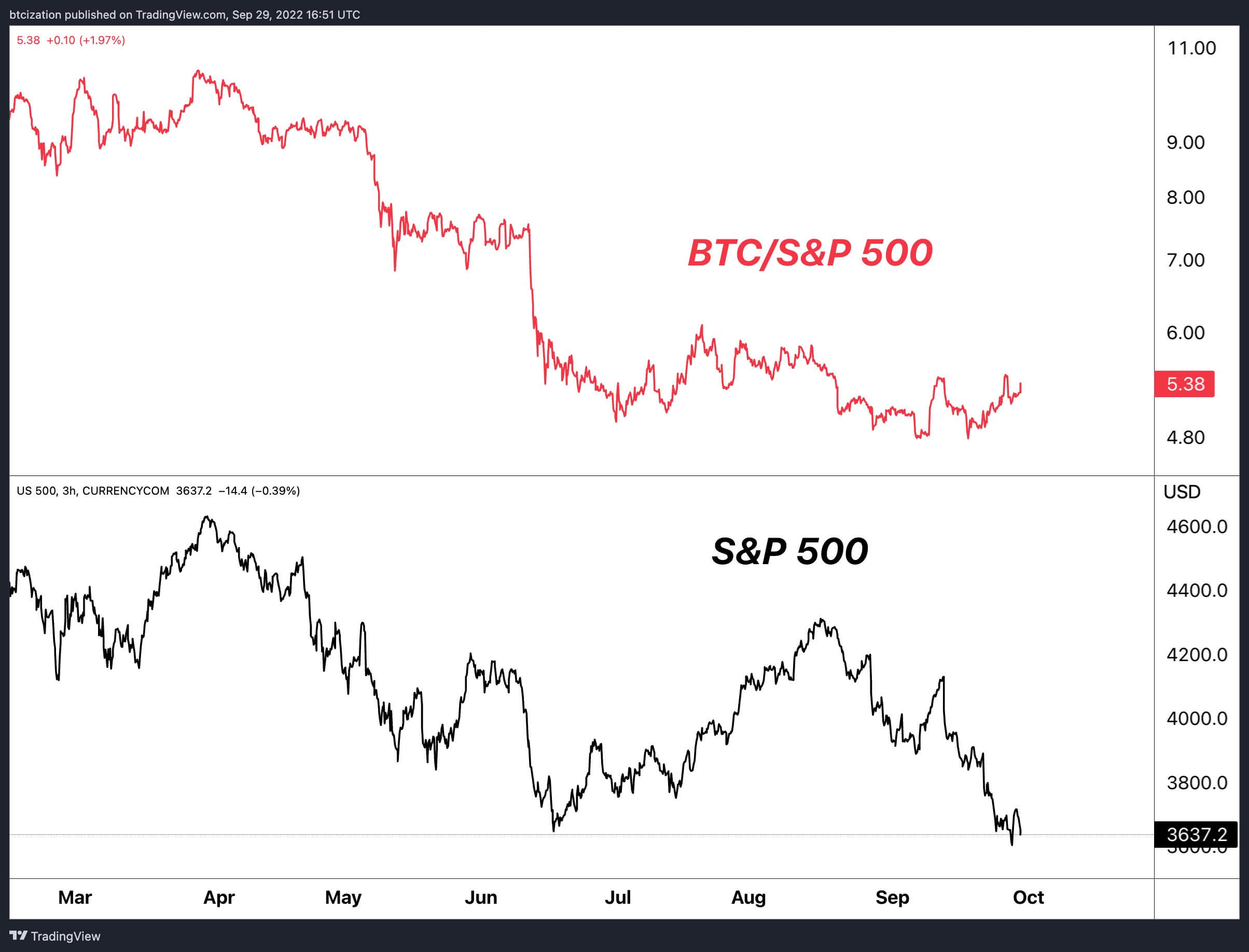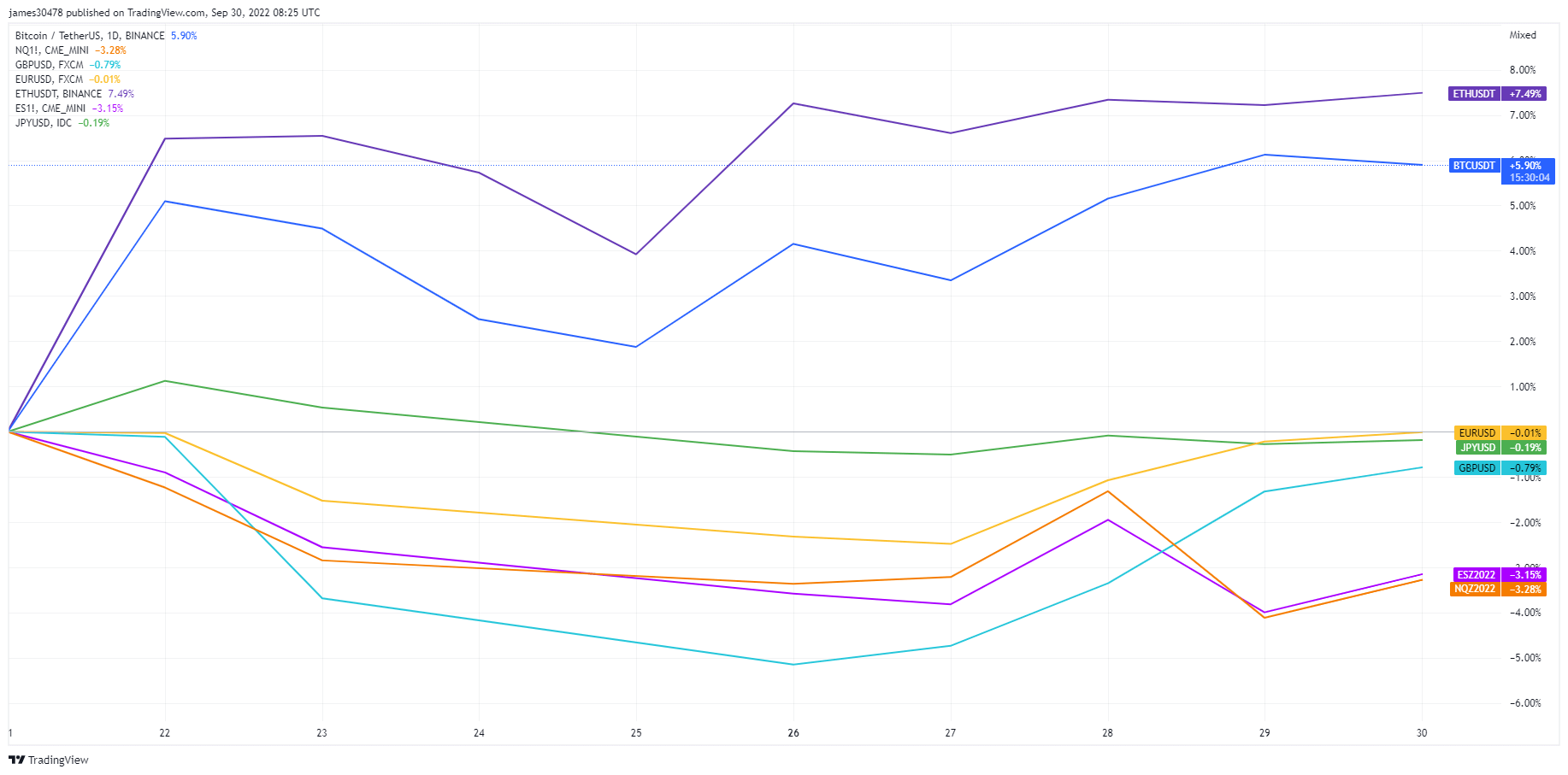[ad_1]
On September 29, Bitcoin Magazine Analyst Dylan LeClair noted Bitcoin had started to “decouple” from the S&P 500.
His charts below show an upturn in the difference between the two as the S&P 500 continues sliding amid macro weakness showcased by the Bank of England’s (BoE) pivot to quantitative easing this week.

Due to its fixed supply of 21 million tokens, Bitcoin was always sold as an “anti-fiat” that could not be debased to zero.
As the global economy continues to falter, that narrative unwound as BTC exhibited risk-on characteristics. However, BTC’s recent performance may suggest otherwise.
Is Bitcoin a legacy hedge?
In April, Bloomberg published an article showing the correlation between Bitcoin and the S&P 500 at the highest it has ever been. This further derailed talk of BTC being a “safe haven asset.”
Inflation has since worsened, and everyday people are experiencing firsthand the effects of loose monetary policy in a cost of living crisis.
As risk-on assets continue to sink, Bitcoin has been holding steady, trading between $18,100 and $22,800 throughout September.
Meanwhile, the S&P500 has charted a distinct decline over the same period, dropping 10% since September 1 – a significant percentage drop for a legacy index.
Since the FOMC meeting on September 21, in which the Fed implemented a third consecutive 75 basis point rate hike, BTC and ETH have outperformed non-USD major currencies, providing further evidence of a decoupling.

LeClair doubts the decoupling will continue
The question remains, will this trend persist as the macro landscape continues to deteriorate?
LeClair responded by saying a continuation of this trend is “highly unlikely.” Yet, BTC’s recent outperformance is a “decent start” to restoring its safe haven narrative.
“Still think a long lasting “decoupling” is highly unlikely in this stage, but relative outperformance is a decent start.“
With that, he signed off, saying it’s “all eyes on FX, global bonds, and equities” as investors brace for what’s to come.
In the near term, some analysts anticipate other central banks to follow the BoE and reverse hawkish policies to intervene in coming crises.
[ad_2]
Source link

